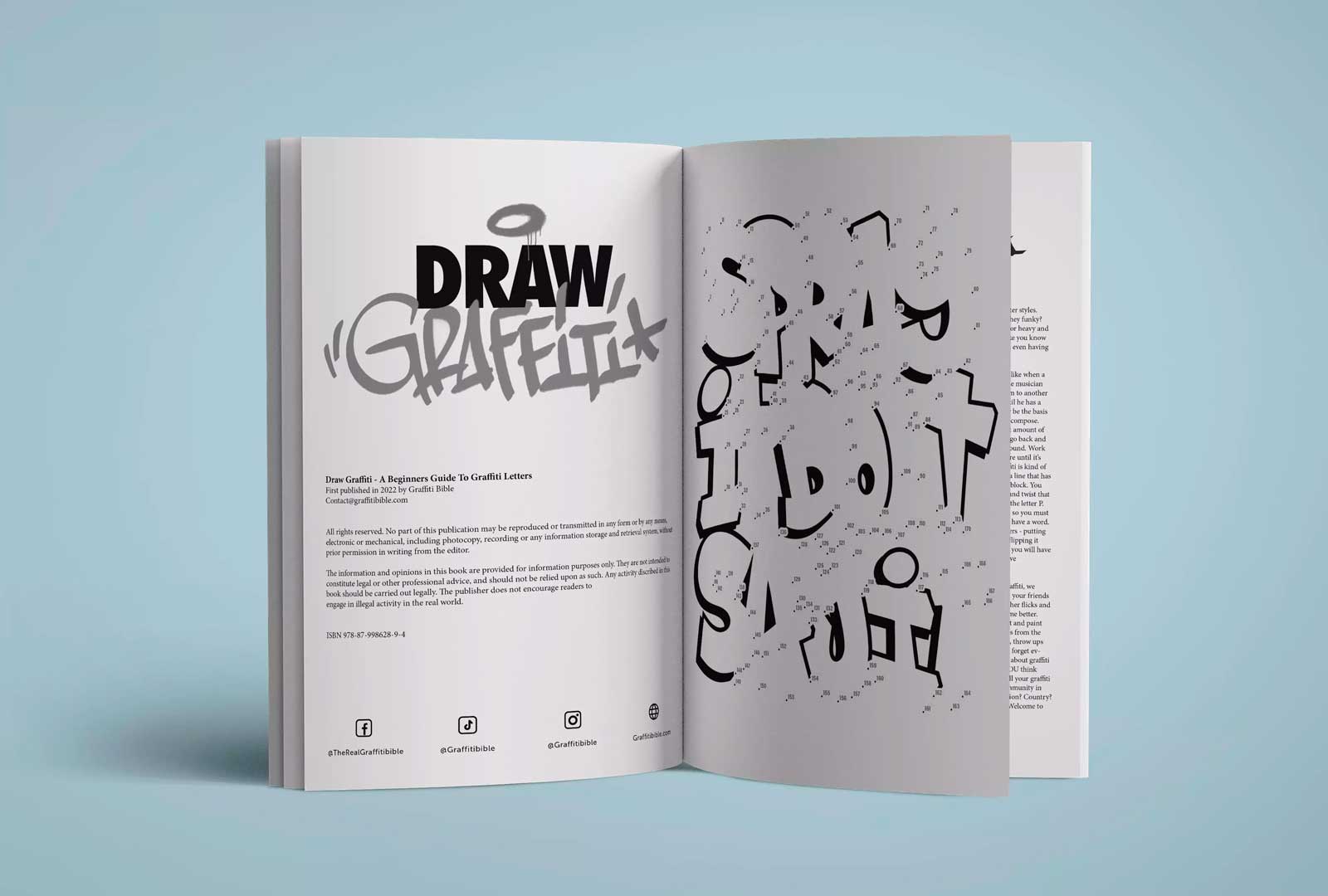Walk down any city street, and you're likely to encounter a visual symphony splashed across walls, bridges, and tunnels. Graffiti, often dismissed as mere vandalism, is a vibrant art form with its own intricate styles, techniques, and cultural significance. At the heart of this urban tapestry lies the alphabet, reimagined and redefined through the lens of graffiti artists.
Forget the rigid lines of your grade-school penmanship; graffiti lettering explodes the ordinary "A" into a kaleidoscope of forms. From bold, blocky throws ups to intricate wildstyle masterpieces, each letter becomes a canvas for creativity and self-expression. Graffiti writers, as they often prefer to be called, pour their skills, experiences, and messages into each curve and flourish, transforming urban landscapes into open-air galleries.
But graffiti is more than just aesthetics. It's a language born on the streets, a form of communication that bypasses traditional channels. A single tag, often the artist's stylized signature, can mark territory, declare allegiance, or simply proclaim their existence to the world. More elaborate pieces might tell stories, celebrate icons, or challenge societal norms. Graffiti, at its core, is about making a statement, leaving your mark, and demanding to be seen and heard.
The beauty of graffiti lettering lies in its diversity. Every writer develops their own unique style, influenced by their environment, influences, and artistic journey. Some gravitate towards classic bubble letters, their rounded forms exuding a playful energy. Others embrace the sharp angles and interconnected lines of wildstyle, creating visually complex compositions that demand a second look. And then there are the countless variations in between, each style a testament to the boundless creativity of the artists.
However, the world of graffiti lettering is not without its complexities. The line between art and vandalism remains a contentious issue. What some consider a vibrant expression of creativity, others view as a blight on the urban landscape. This tension is further fueled by the often-illegal nature of graffiti, with artists risking fines, arrest, and social stigma to practice their craft. Yet, despite these challenges, graffiti lettering continues to thrive, evolving and adapting, reflecting the ever-changing pulse of the streets.
Advantages and Disadvantages of Graffiti Lettering
Graffiti lettering, like any art form, comes with its own set of advantages and disadvantages:
| Advantages | Disadvantages |
|---|---|
|
|
Common Questions About Graffiti Lettering
1. Is all graffiti illegal?
No, not all graffiti is illegal. Some property owners commission graffiti artists for murals, and there are designated areas in some cities where graffiti is permitted.
2. What is a "tag" in graffiti?
A "tag" is a stylized signature of a graffiti artist, often done in a single color.
3. What are some different graffiti lettering styles?
Common graffiti lettering styles include bubble letters, throw-ups, wildstyle, and block letters.
4. What kind of paint do graffiti artists use?
Graffiti artists primarily use aerosol spray paint, but other materials like markers, stencils, and even rollers can be used.
5. Is graffiti art or vandalism?
The debate over whether graffiti is art or vandalism is ongoing and subjective. It often depends on the context, location, and the perspective of the viewer.
6. Can I learn graffiti lettering without getting in trouble?
Yes, there are legal ways to learn and practice graffiti lettering. You can sketch in blackbooks, take workshops, or practice on designated legal walls.
7. Are there any famous graffiti artists?
Yes, there are many renowned graffiti artists, including Banksy, Jean-Michel Basquiat, and Keith Haring, who have gained international recognition for their work.
8. How has graffiti lettering influenced mainstream art and culture?
Graffiti lettering has had a significant influence on graphic design, fashion, advertising, and even fine art, inspiring new trends and pushing creative boundaries.
Tips and Tricks for Graffiti Lettering
While mastering graffiti lettering takes time and practice, here are a few tips to get you started:
- Start with Sketching: Practice drawing different letterforms in a sketchbook to develop your style.
- Master Can Control: Learn how to control the spray paint can to create clean lines and smooth curves.
- Experiment with Colors and Fills: Don't be afraid to play with different color combinations and fill techniques.
- Study Other Artists: Look at the work of established graffiti artists for inspiration and to learn different techniques.
- Practice Legally: Find legal walls or spaces to practice your skills and avoid getting in trouble.
Graffiti lettering, a vibrant and often controversial art form, continues to captivate and challenge our perceptions of art, urban space, and social expression. From the bold tags that mark territory to the intricate murals that transform cityscapes, graffiti lettering invites us to look beyond the surface and appreciate the creativity, skill, and messages embedded within its vibrant forms. While the debate surrounding its legality and impact persists, there's no denying the power and influence of graffiti lettering in shaping contemporary visual culture.
Kuromi wallpaper aesthetic pc the ultimate guide
Dead battery costcos portable jump starters your ultimate guide
Madame tussauds new york photos
Graffiti Art Letters A Z - Khao Tick On
Bubble Font Images, Fat, Graffiti Letters, Airbrush Alphabet, Airbrush - Khao Tick On
a in graffiti letters - Khao Tick On
Graffiti Letter U Premium Vector Art Graphic by K for Kreative - Khao Tick On
a in graffiti letters - Khao Tick On
101 Best Graffiti Letters Tattoo Ideas That Will Blow Your Mind! - Khao Tick On
Fonte de letras de graffiti - Khao Tick On






